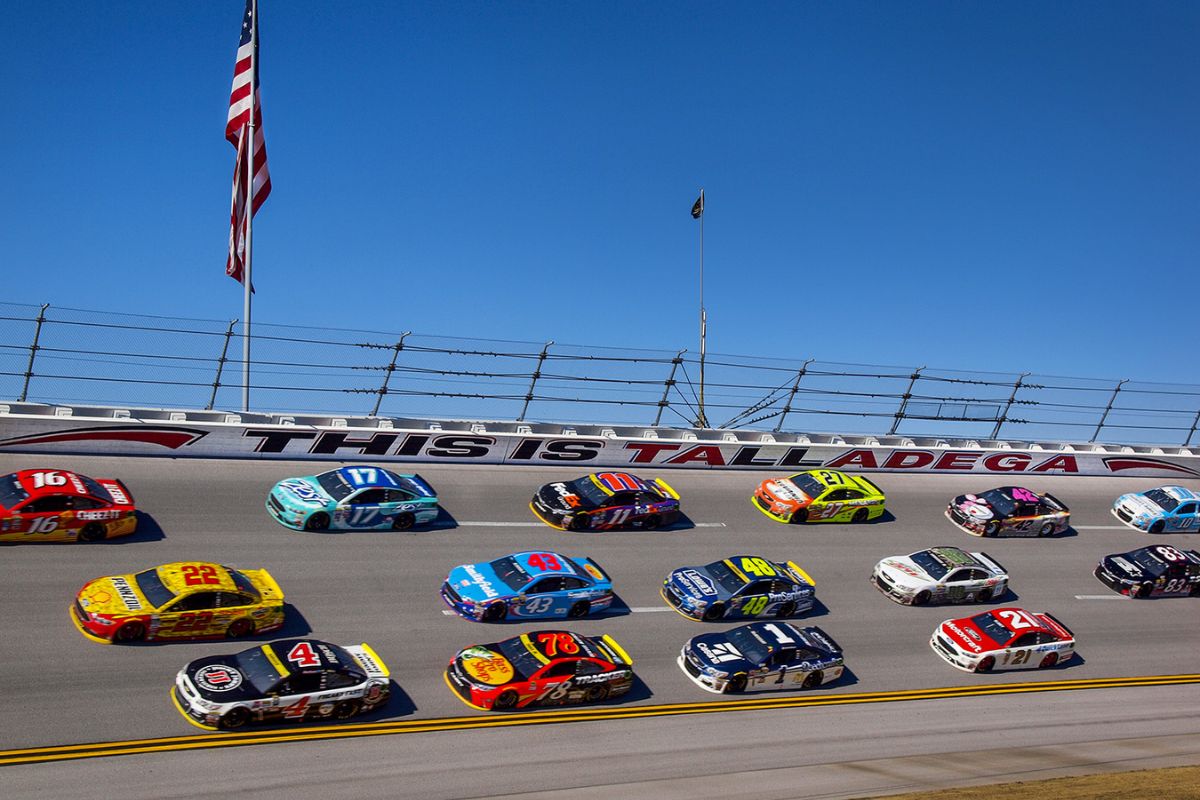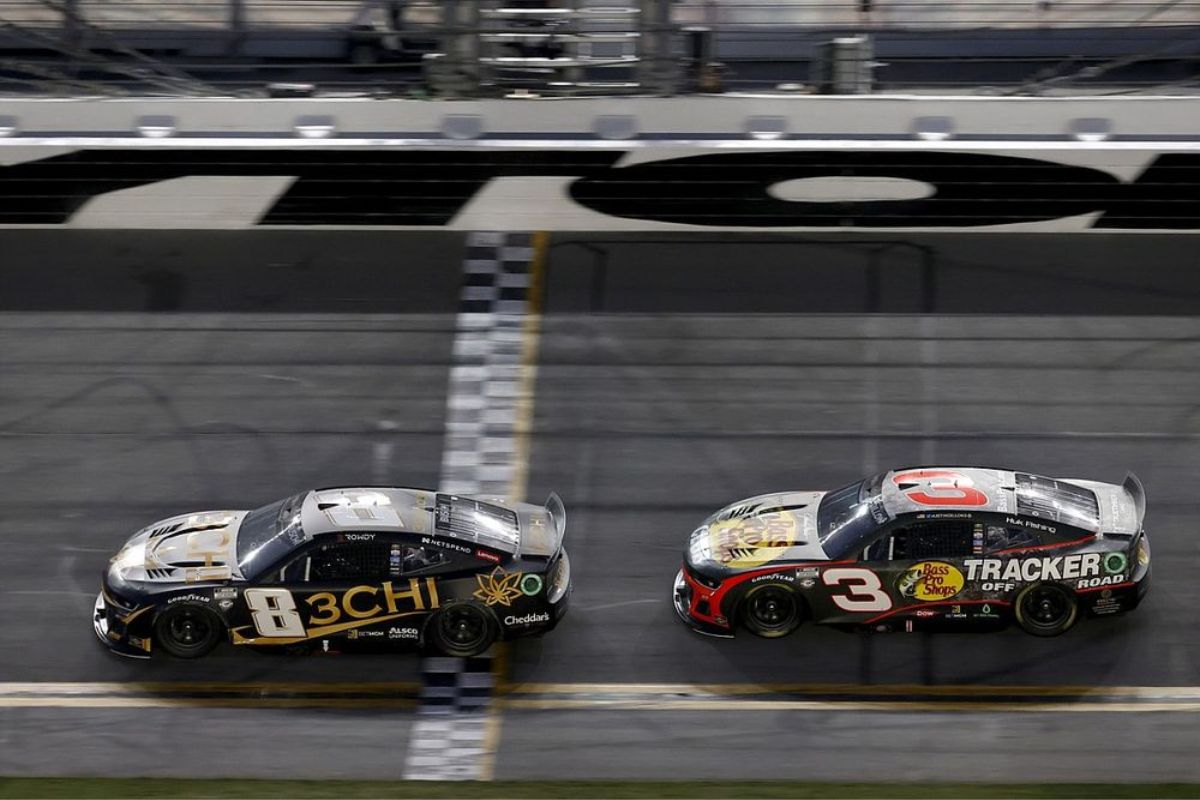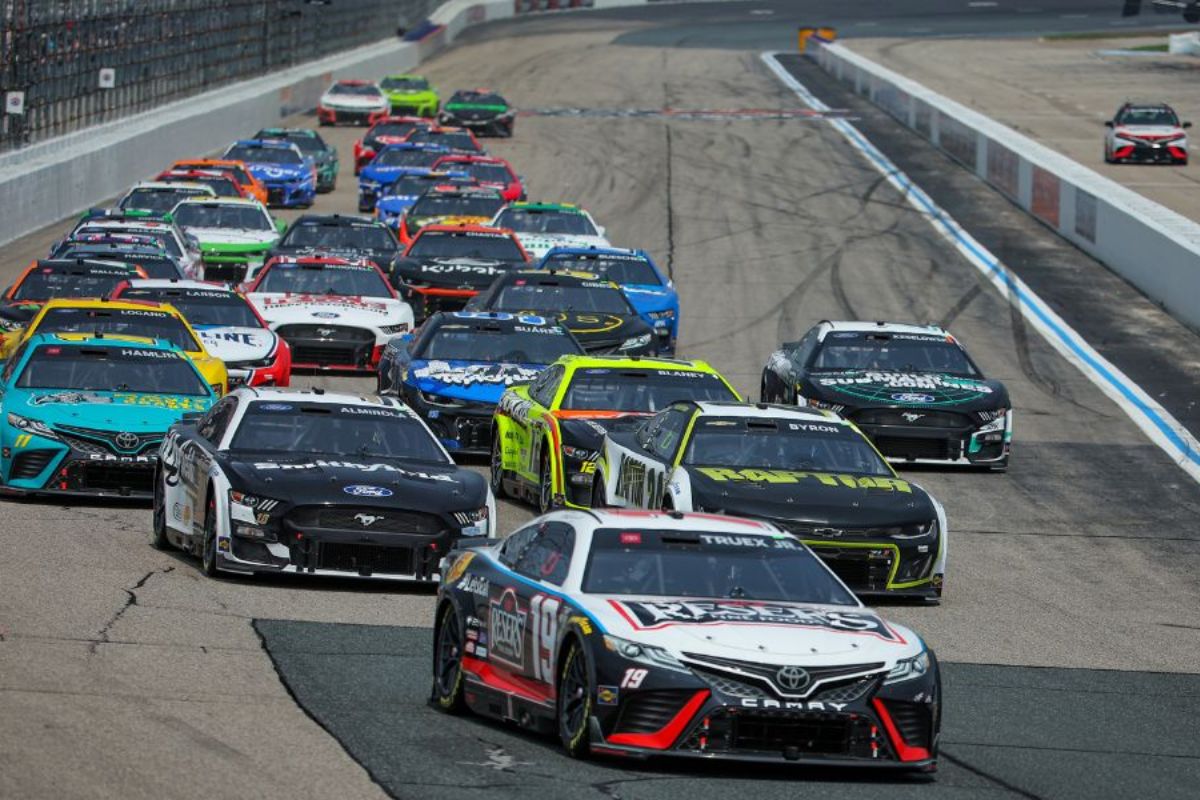NASCAR Denies Charter Agreements: In NASCAR, the ongoing negotiations over the charter agreement represent a crucial moment for the sport’s future. As the 2024 expiration date looms, team owners appear willing to bend, yet NASCAR’s leadership maintains a rigid posture, emphasizing the importance of stability and long-term viability over immediate concessions. This firm stance, while potentially safeguarding the sport’s structural integrity, raises questions about the impact on team dynamics and the broader competitive landscape.
Key Takeaways
- NASCAR and team owners are nearing a compromise on the new charter agreement.
- Despite nearing a compromise, NASCAR maintains a firm stance on key issues.
- The focus remains on equitable distribution of media deal revenues.
- Steve O’Donnell plays a crucial role in balancing interests during negotiations.
- The new agreement aims to sustain a competitive and dynamic racing environment.
Tension Between NASCAR and Team Owners
The recent negotiations over a new charter agreement have intensified longstanding tensions between NASCAR and team owners, as they navigate the complexities of the impending expiration and the terms of a new deal. This discord traces back to the inception of the current charter system, which was established to provide teams with more financial stability and a guaranteed entry into races. However, with the shifting landscape of sports media rights and revenue streams, team owners are now pressing for terms that better reflect the current economic realities of the sport.
The crux of the tension lies in the allocation of the sport’s revenue, particularly in light of the lucrative new media deal signed by NASCAR. Team owners argue that the increased revenue from these deals should translate into greater financial returns for their teams, which bear significant operational costs. They contend that a more equitable distribution of these funds is essential for the sustainability of their operations and the overall health of the sport.

O’Donnell’s Confidence in a Resolution
Amid the critical negotiations, Steve O’Donnell, NASCAR’s COO, expressed confidence at the CAA World Congress of Sports that a mutually beneficial resolution is within reach. Speaking in Los Angeles, O’Donnell highlighted the inherent challenges in forming a new agreement but maintained a positive outlook regarding the outcome.
O’Donnell’s reassurances come at a crucial moment for NASCAR, as the organization seeks to solidify its future through strategic partnerships and innovative agreements. The COO’s role in these negotiations is significant, requiring a balance of diplomacy and firmness to navigate the complex landscape of sports management and media rights.
“We’re very close,”
“Ultimately, when our owners look at where the sport’s potential is in terms of all the new media partners, the balance that we do have with linear and now being able to go with the Amazon’s, [TNT Sports], all the opportunities we have with content, I think they get it. Everyone wants to sit down and argue over who’s going to split the money the right way, but ultimately we’ll get to a good place.”- Steve O’Donnell
The negotiations, as outlined by O’Donnell, are more than just contractual obligations; they are about setting a precedent for how NASCAR interacts with its teams and partners in the evolving world of sports broadcasting and sponsorship. The emphasis on reaching a ‘good place’ suggests a focus on equitable solutions that consider the interests of all stakeholders, ensuring that the sport remains competitive and financially viable.
NASCAR COO Steve O‘Donnell called it the “never-ending question.” So how close are NASCAR and its teams on a charter agreement. “We‘re very close,” O’Donnell said. O‘Donnell was part of a panel Wednesday at the CAA World Congress of Sports in… #Breaking #BreakingNews #NASCAR
— Patriot Pointman 🇺🇸 (@PatriotPointman) April 18, 2024
In his discourse, O’Donnell did not shy away from acknowledging the existing issues. However, his forward-looking statements and the context of the new media rights deal suggest a roadmap towards resolution that could redefine NASCAR’s operational dynamics and enhance its appeal to a broader audience.
Potential Impact on Team Ownership
Steve O’Donnell’s stance on not granting permanent status to existing NASCAR teams could profoundly reshape the landscape of team ownership. This decision, while potentially unsettling for longstanding teams, opens the door to a more dynamic and competitive environment within the sport. Without the security of permanence, team owners are pressed to continuously innovate and perform at high levels, ensuring that the NASCAR Cup Series remains fiercely competitive and engaging.
The refusal to grant permanent status does not merely alter the traditional securities of current teams but also infuses the sport with fresh opportunities for new investors and business interests. This new perspectives and capital could lead to a diversification in team strategies and management styles.
Moreover, this policy could serve as a catalyst for increased financial scrutiny and strategic financial planning among teams. In a landscape where tenure cannot be taken for granted, financial health and resource allocation become critical in sustaining a team’s presence and success in the series.

Resistance from Traditional Ownership
Resistance from traditional ownership emerges as these stakeholders confront the potential upheaval of their long-established roles within NASCAR due to the new media rights deal. The core of this resistance lies in the preservation of the financial and strategic status quo that has benefited them over decades. With the new deal, NASCAR aims to diversify ownership and potentially lower barriers to entry, a move that could dilute the influence and economic benefit currently enjoyed by traditional owners.
Steve O’Donnell’s comments highlight a key tension; the traditional owners favor arrangements that inflate charter values, making them assets. This financial elevation serves as a gatekeeping mechanism, ensuring that only the most financially endowed can enter the fray. The proposed changes could see a democratization of team ownership structures, potentially introducing a new era of competitive balance and innovation.
“There’s some things that’ll challenge us a little bit and push us, but … ownership that is maybe not traditional to the sport is good for us. We’re going to have new personalities, new businesses that’ll come into the sport. So I think at the end of the day, we’ve talked about everybody will be a little ticked off once we get to the deal, but that’ll mean it’s the right way to go”
| Aspect | Traditional Ownership View | NASCAR’s Vision |
|---|---|---|
| Economic Interest | Preserve high charter values | Reduce entry barriers |
| Market Control | Maintain exclusivity | Increase competition |
| Strategic Aim | Stability and status quo | Innovation and growth |
| Ownership Model | Closed, selective system | Open, inclusive system |
| Future Outlook | Protect current investments | Foster broader participation |
Uncertainty and Disagreement Looming
Despite efforts to reach a consensus, substantial uncertainty and disagreement persist among NASCAR stakeholders regarding the new media rights deal. Teams and NASCAR are on a tight timeline, needing to finalize negotiations before the season concludes.
- Discrepancy in Expectations: Team owners and NASCAR have fundamentally different visions for the future distribution of media rights, concerning both scope and financial distribution.
- Communication Gaps: There appears to be a significant lack of effective communication and transparency in the negotiation process, leading to misinformation and heightened tensions.
- Urgency of Agreement: The pressing deadline to solidify a deal adds a layer of tension, pushing parties towards rushed decisions that may not satisfy all stakeholders.
- Historical Disputes: Past disagreements and unresolved issues between NASCAR and team owners are resurfacing, complicating current discussions and influencing negotiations.

News in Brief: NASCAR Denies Charter Agreements
The ongoing negotiations between NASCAR and team owners reflect a critical moment for the sport’s governance and future trajectory. The steadfast stance of NASCAR against permanent charters highlights a commitment to maintaining a dynamic competitive landscape, although this has led to tensions with team owners seeking more financial security and stability. The resolution of these negotiations will greatly shape the operational and economic frameworks within NASCAR, influencing the strategic decisions of current and prospective team stakeholders.
Our Reader’s Queries
Q: Can you race in NASCAR without a charter?
A: To compete in a NASCAR race, like the Daytona 500, without a charter, teams must qualify with a fast time. Formerly, 43 cars were allowed to race, reduced to 40 in recent years, and sometimes even 38.
Q: What is the charter agreement in NASCAR?
A: NASCAR and teams under the charter system commit to exclusivity, limiting charters and team participation in other leagues. The current charters hold until 2024, coinciding with NASCAR’s media rights deal expiry.
Q: What does a NASCAR charter cost?
A: Initially distributed for free by NASCAR, charters’ value surged as teams began leasing or selling them. Recent reports suggest Spire Motorsports paid $40 million for a charter before the 2023 season concluded last fall.
Also Read: NASCAR Partners with US Government: For Online Abuse


